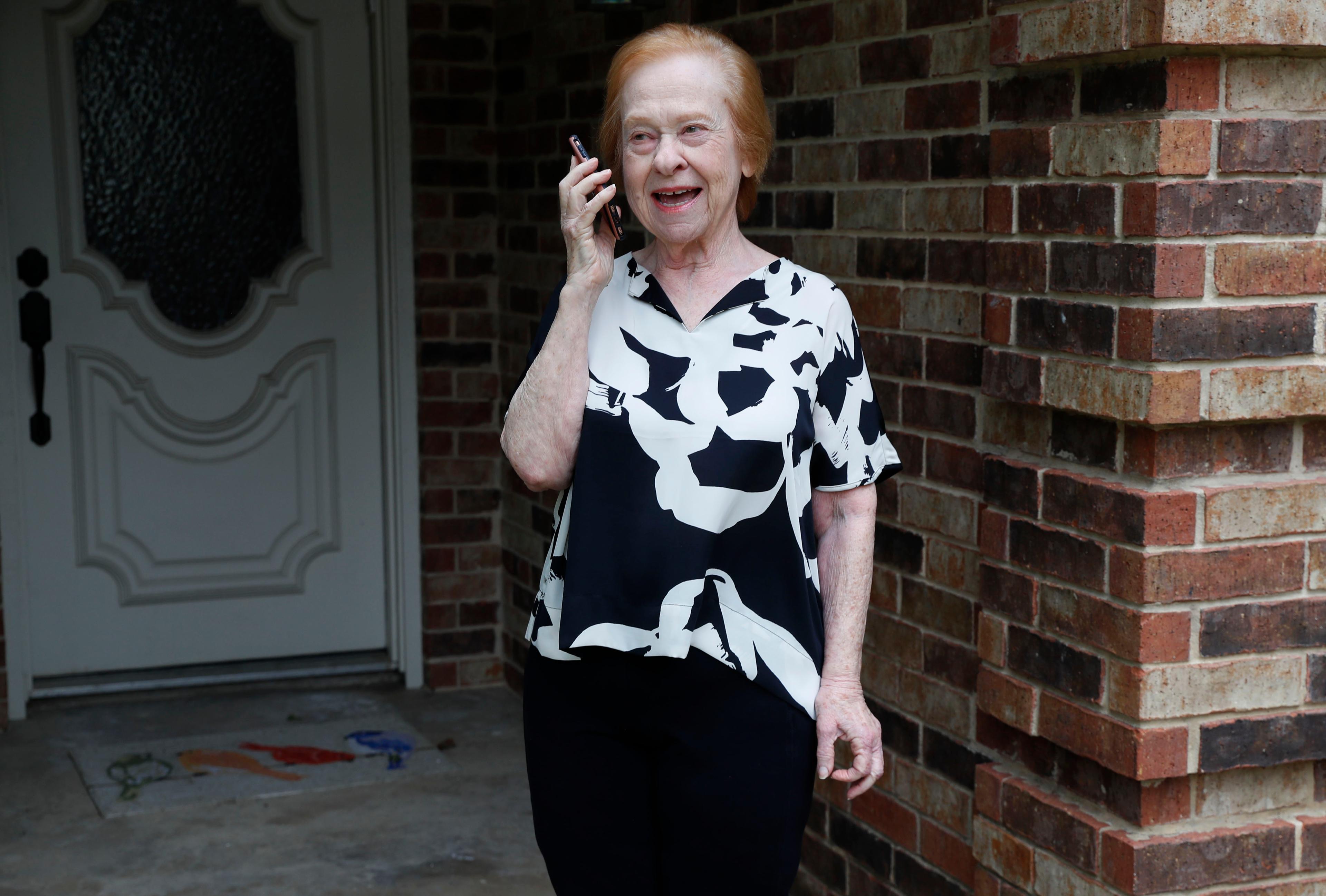
Aging can be tough, and one of the most difficult and lesser-discussed aspects for many is dealing with loneliness and social isolation. A growing body of research finds that older people are more likely to face risk factors due to living alone, the loss of family members and friends, chronic illness, and even hearing loss.
One organization is reaching out nationwide, including in Colorado, to help combat these adverse effects of loneliness among seniors — one phone call at a time.
Social Call connects volunteers who sign up to call older adults for weekly one-on-one, 30-minute phone calls. Organizers say the program helps provide consistent conversation and connection, something that will continue to be a growing need in Colorado.
Colorado's number of older adults is expected to more than double to 1.7 million by 2050, according to state demographer Elizabeth Garner.
A deep bond, formed 100% on the phone
Mary Sust and Courtney Clark, who met through Social Call, recently talked with Colorado Matters host Chandra Thomas Whitfield about their experience.
Sust has been homebound for 20 years. She was matched with Clark, a volunteer, and they became instant friends despite their 30-year age gap and the fact that they each live in different states and have never met in person. The two say they now consider each other family.
“I have somebody very close to me. I feel I have another family member,” Sust said. “I love my nieces, and Courtney is in the same age range, she could be a niece. I don't have to be related by blood to have a niece. So Courtney is my niece, my peer, somebody I am so proud of. She's so remarkable. She has gone through so many things and has overcome many obstacles and still is strong and optimistic and is moving forward to getting a family of her own.”
| Whether you're aging yourself or caring for someone who is, what questions do you have? Email us at [email protected] or leave a voicemail at 303-871-9191 X 4480. |
Clark says she too has found immense value in the program, especially when she recently moved to a new community and lacked local connections. The opportunity to volunteer from home through Social Call was also a plus.
The connection she shares with her phone buddy, she says, has become a vital part of her life.
“Having this friendship and connection with Mary has enriched my life in so many ways; she's family. I have a new family member, I have an aunt, another mother figure to go to, and that is just so invaluable,” Clark said. “And it's been so enriching for my life and I honestly forget that it's a volunteer opportunity. Every month when I am to submit my volunteer report, I'm reminded, ‘Oh yeah, this is a volunteer opportunity,’ because, I mean, she's family. I look forward to our call every single week.”
An impact beyond combating loneliness
Katie Wade, senior director of creative engagement for the Social Call program, says the feedback they often receive is that the success of Social Call lies in its simplicity.
A phone call, a conversation, and a connection. Two people building a friendship that transcends generations and geographical barriers is the case for practically all of the program’s participants.
Wade contends the impact goes beyond just combating loneliness. It also fosters understanding, empathy and companionship.
“Mary and Courtney are such a good representation of Social Call,” she says. “Two hearts connecting, despite the miles (between them) through the phone waves and that's what Social Call is all about; building relationships one call at a time, whether that's video or phone, and about 70% of those relationships tend to be intergenerational.”
As part of the onboarding process, volunteers and participants take part in an individualized matching process — think Match.com or EHarmony, but for friendship. Everyone is are also vetted for safety and security beforehand. Volunteers are asked to commit to the program for at least six months, but are not required to stay with their first match.
“The process is really thorough. They ask a lot of detailed questions about everything, not invasively of course, but just getting to know me,” Clark said. “ I felt like my representative really knew me well. And at the end of our conversation, she said, ‘I have someone that I think will be a perfect match for you.’ And she was right."
As Colorado's aging population grows, programs like Social Call are becoming increasingly vital, offering a lifeline of support and companionship that not only enriches the lives of seniors, but also empowers volunteers to make a meaningful difference in the lives of those who may be struggling.
"I could survive without having this connection, but I would not be as happy," Sust said "I would not feel as engaged in the world."
This story is a part of Aging Matters, a series from Colorado Matters about the Centennial State's aging population. Read more stories here.








